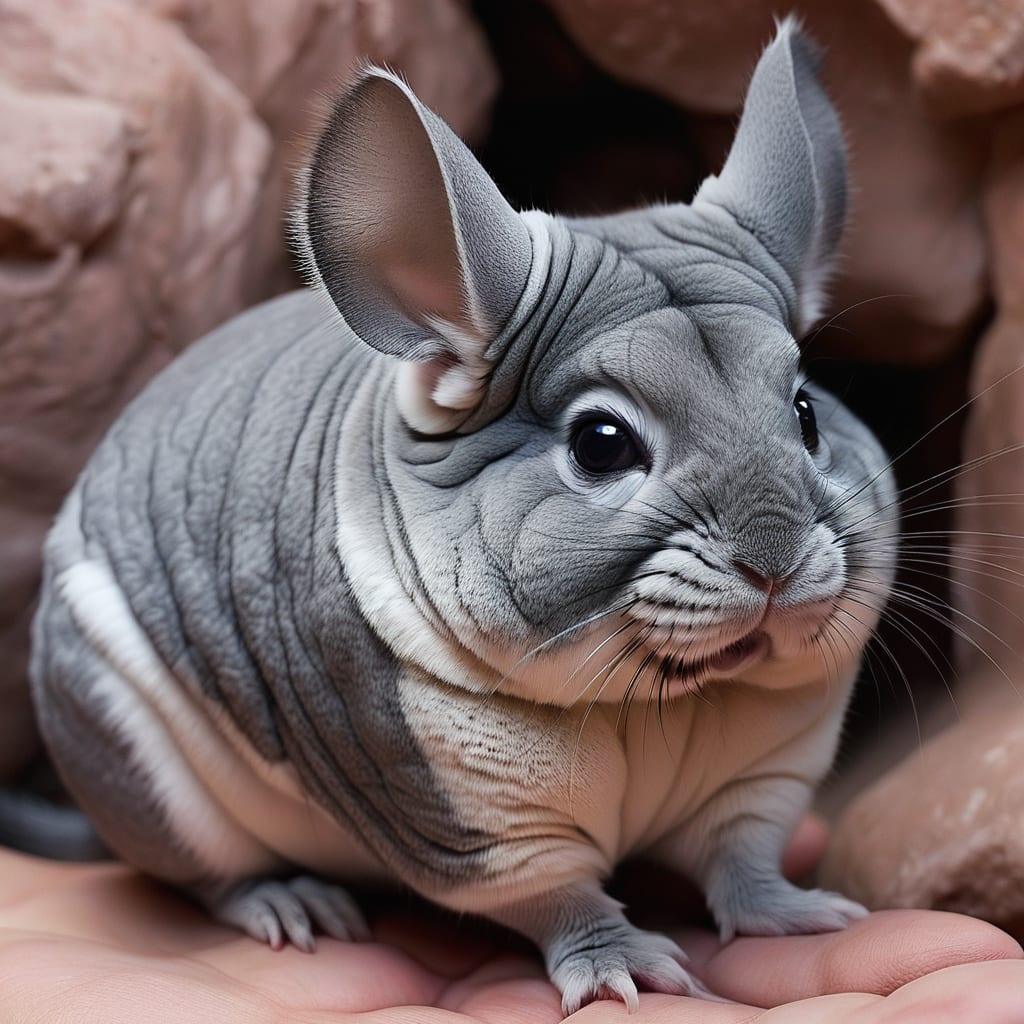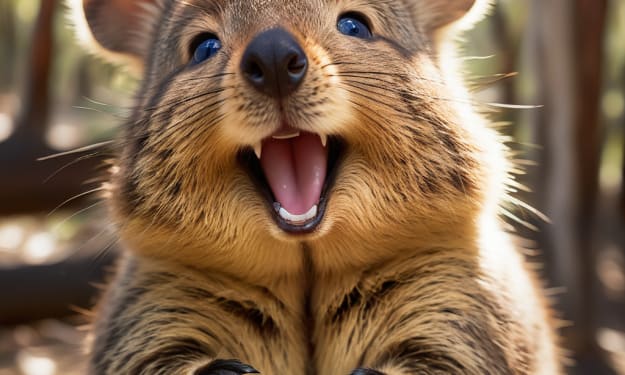Chinchillas: The Soft Whisperers of the Andes
In the rugged terrains of the Andes Mountains, a small creature moves in the shadow of the night, its soft fur catching the moonlight, creating a gentle glow against the stark landscape. This creature is the chinchilla, a rodent known for its incredibly soft fur, playful demeanor, and complex social structures. Once facing the brink of extinction due to relentless hunting for its pelt, the chinchilla has found a new lease on life through conservation efforts and a growing popularity as an exotic pet. This blog explores the fascinating world of chinchillas, from their natural habitats to their care in domestic settings, highlighting the importance of ethical responsibilities toward these enchanting animals.

A Glimpse into the Wild
Chinchillas belong to the rodent family and are native to the Andes Mountains in South America. There are two species: the long-tailed chinchilla (Chinchilla lanigera) and the short-tailed chinchilla (Chinchilla chinchilla). These nocturnal animals have adapted to life at high altitudes, with dense fur protecting them from cold temperatures. In the wild, chinchillas live in social groups, which helps them protect each other from predators and survive in harsh environments.
The Plight for Survival
Historically, chinchillas were hunted to near extinction for their fur, which is considered the softest in the world. By the early 20th century, the demand for chinchilla fur led to a drastic reduction in their population, pushing them towards extinction in the wild. Today, both species of chinchillas are listed as "Endangered" by the IUCN Red List, with habitat loss due to mining and farming posing additional threats to their survival.
Chinchillas as Pets
In recent decades, chinchillas have gained popularity as pets, admired for their curious and affectionate nature. However, caring for a chinchilla requires understanding and commitment. Their dense fur necessitates a dust bath in volcanic ash two to three times a week to keep their coat clean and healthy. They are active and playful, requiring a spacious cage with plenty of opportunities for exercise and mental stimulation.
Chinchillas have specific dietary needs, primarily consisting of hay and specially formulated pellets. They are sensitive to heat and humidity, with their ideal living temperature being around 60-70°F (15-21°C). Prospective pet owners should be prepared for a long-term commitment, as chinchillas can live up to 15-20 years in captivity.
Ethical Considerations and Conservation
The allure of chinchillas as pets has led to a surge in breeding practices, not all of which are ethical. It's crucial for potential chinchilla owners to research and support responsible breeders who prioritize the well-being of their animals. Moreover, the international community continues to work towards the conservation of wild chinchilla populations. Efforts include habitat restoration, legal protection, and research to better understand their ecological needs.
The Future of Chinchillas
The story of chinchillas is a poignant reminder of the impact human activity can have on species. Conservation efforts in their natural habitat and responsible pet ownership are vital to ensuring that chinchillas thrive both in the wild and in homes. Education and awareness can foster a deeper appreciation for these remarkable animals and the challenges they face.
Understanding Chinchilla Behavior
Chinchillas are not only known for their soft fur but also for their dynamic and endearing behaviors. They are crepuscular, meaning they are most active during dawn and dusk. This schedule aligns with the cooler hours in their native high-altitude environments, but it also suits many pet owners' schedules, allowing for interactive playtime in the morning and evening.
Chinchillas communicate through a range of sounds, from barks to chirps, each indicating different moods or needs. Observing these behaviors can be fascinating for owners and helps in forming a strong bond with their pets. However, they also require patience and understanding, as chinchillas can be skittish and take time to trust new people.
Conservation in Action
Despite their endangered status in the wild, there have been concerted efforts to conserve chinchilla populations. Organizations like Save the Wild Chinchillas are focused on conserving the natural habitat of chinchillas, conducting research, and promoting conservation education. In Chile, the Llanos de Challe National Park is one of the few protected areas where wild chinchillas can live relatively undisturbed by human activity.
Moreover, breeding programs in captivity, though primarily aimed at the pet trade, have the potential to contribute to conservation knowledge and genetic diversity. These programs can provide valuable information on chinchilla health, behavior, and reproduction that can aid in the conservation of wild populations.
The Ethical Debate
The ethics of keeping chinchillas as pets are complex. While they can make delightful companions for the right owner, their specific needs and long lifespan make them unsuitable for everyone. Potential owners must consider not only the initial appeal but also the commitment required to provide a fulfilling life for these animals.
Furthermore, the debate extends to the use of chinchillas for their fur. While the practice has declined significantly, it still exists in some parts of the world. Many animal rights organizations argue against the use of animals for fur, advocating for synthetic alternatives that do not harm living creatures.
Getting Involved
For those moved by the plight of the chinchilla or charmed by their unique personalities, there are several ways to get involved. Supporting conservation efforts, either through donations or volunteer work, can make a significant difference. Educating others about chinchillas, their natural habitats, and the challenges they face raises awareness and fosters a broader base of support for conservation initiatives.
For prospective pet owners, adopting from shelters or rescues rather than purchasing from pet stores can help reduce the demand that drives unethical breeding. Participation in local and online chinchilla enthusiast communities can also be a great way to learn more and share experiences with like-minded individuals.
Conclusion: A Call to Appreciate and Protect
Chinchillas offer a unique window into the complexity of nature and the impacts of human activity on wildlife. Whether through supporting conservation efforts, responsible pet ownership, or advocacy against unethical treatment, there are many ways to contribute to a better future for chinchillas. By appreciating these remarkable animals and taking action to protect them, we can ensure that chinchillas continue to thrive, both in the wild and in our homes, for generations to come.






Comments
There are no comments for this story
Be the first to respond and start the conversation.